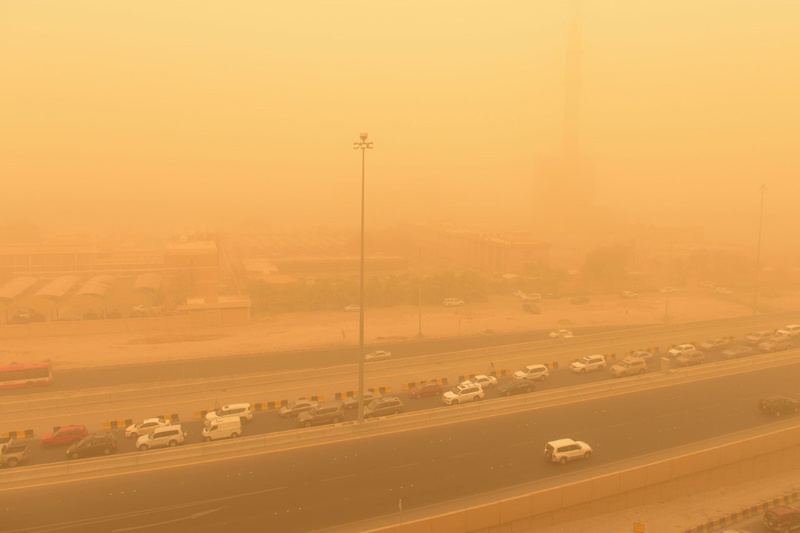 KUWAIT: This file photo shows a dust storm in Kuwait. - KUNA
KUWAIT: This file photo shows a dust storm in Kuwait. - KUNA
KUWAIT: Record heatwaves in the US, Canada, Russia and some European countries, wildfires in nations like Greece, Turkey, and Lebanon, as well as rising sea levels in regions like East Antarctica all point to a common perpetrator: climate change. What used to sound like a problem for future generations is occurring right here and now and according to international organizations, such as the UN amongst others, this problem necessitates an urgent solution or else humanity is doomed.
UN Secretary-General Antonio Guterres said in a recent statement, citing a report by the Intergovernmental Panel on Climate Change (IPCC), that climate change was a "code red for humanity", which begs the question, what will human beings do to overcome this dilemma? Seeking answers on countering climate change, several local experts were consulted to provide their input.
Head of marine forecast at the Kuwait Control and Meteorological Center (KCMC) Yasser Al-Bloushi said that the main cause for climate change was greenhouse gas emissions, which prevents sunrays from escaping earth's atmosphere, leading to increase in temperatures and other catastrophic environmental effects. Countries, which previously did not experience heatwaves, now face increased temperatures in addition to anomalous weather, leading to wildfires, rising sea levels, floods, mudslides, and so on, he added.
The solution? Decrease or manage the levels of greenhouse gas emissions caused by vehicles, factories and other culprits, indicated Bloushi. On the national level, Bloushi revealed that Kuwait had recorded unprecedented high temperatures, managing over 50 C degrees on average this summer compared to previous years. Strong wind also increased dust, which has ill effects on both humans' health and power infrastructure, he added.
Grim future
On the grim future possibilities, meteorologist Mohammad Karam stressed the need for a global stance to decrease carbon emissions in the atmosphere via countering that with ecofriendly technologies or else, hope will be lost. He pointed out that the World Meteorological Organization's (WMO) forecast for temperature in the upcoming half a century warned that temperature would increase by 1.5 to 2.5 percent, leading to rising sea levels and threatening humans' very own existence on this planet.
As for Kuwaitis contributions to better the chances against climate change, deputy head of monitoring at the Environment Public Authority (EPA) Samira Al-Kanderi revealed that the country had been a signatory to United Nations Framework Convention on Climate Change (UNFCC) since 1994. The UNFCC's first article attributed climate change to the direct and indirect human activities, which reshaped the composition of earth's atmosphere, leading to alarming and bizarre weather conditions. Kuwait also signed UNFCC's Kyoto Protocol on Climate Change in 2005 and the Paris Agreement in 2018, she mentioned.
Kanderi added that Kuwait provided its national environment proclamations in 2012 and 2019 as well as the Kuwait National Adaptation Plan (NAP) submitted to the UNFCC on February 11th, 2021. She indicated that the documents offered inputs and predictions of greenhouse gas emissions until 2035 in addition to data in rising temperatures and sea levels up to 2100. She revealed that the EPA was in the process of formulating Kuwait's 2050 strategy for carbon emission decree as well as the 2025 document for national contributions within the framework of the Paris Agreement. - KUNA
.jpg)
